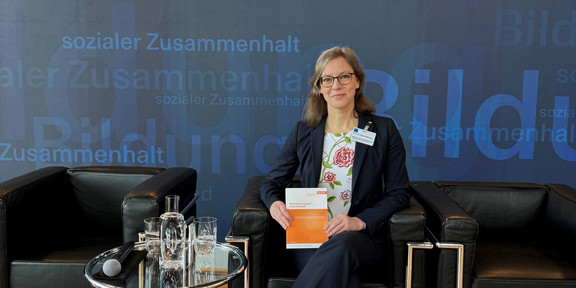Report of the Aktionsrat Bildung – Education and social cohesion
- News
- Press release
- Publications

Aktionsrat Bildung presents report on "Education and social cohesion", in which Prof. McElvany participated as an expert for the primary school area.
Social conditions have changed fundamentally in recent years as a result of the COVID-19 pandemic, migration, climate change, external and internal violence, social inequality and division, and a systematic response to these challenges is unavoidable from the perspective of the education system. The annual report of the Aktionsrat Bildung identifies the strengthening of social cohesion as the answer to this epochal change. As the first formal phase of education and the only undivided part of the education system, elementary school have a prominent role to play in supporting social integration, building a sense of community and facilitating trustful exchange between people from different social groups.
The foundations of social relationships can and must be laid in primary school. In addition to the fundamental promotion of social relationships, the education experts in the report call for a stronger focus on identification by strengthening personal identities instead of emphasizing incompatible social identities of children and a focus on the common good. "This is urgently needed," explains Professor Nele McElvany, member of the Aktionsrat Bildung and expert in the field of primary schools, "a study carried out at our institute has shown, for example, that negative implicit attitudes towards children with a Turkish migration background already exist at primary school age." With a view to ensuring social cohesion in a heterogeneous society, the report suggests firmly integrating learning content into elementary school curricula that explicitly addresses and promotes tolerant coexistence with different social groups. Orientation towards the common good and social commitment are to be integrated into the school program as a concrete control element.
In addition, consistent language support and the strengthening of basic skills in primary school are called for as the foundation of social cohesion: "The findings of the PIRLS 2021 study show that a quarter of primary school children do not achieve the minimum reading skills at the end of fourth grade, changes are urgently needed to enable all children to participate in society and social cohesion in Germany on the basis of a common language," explains McElvany, head of the Progress in International Reading Literacy Study (PIRLS) in Germany.
Read the IFS press release here.





